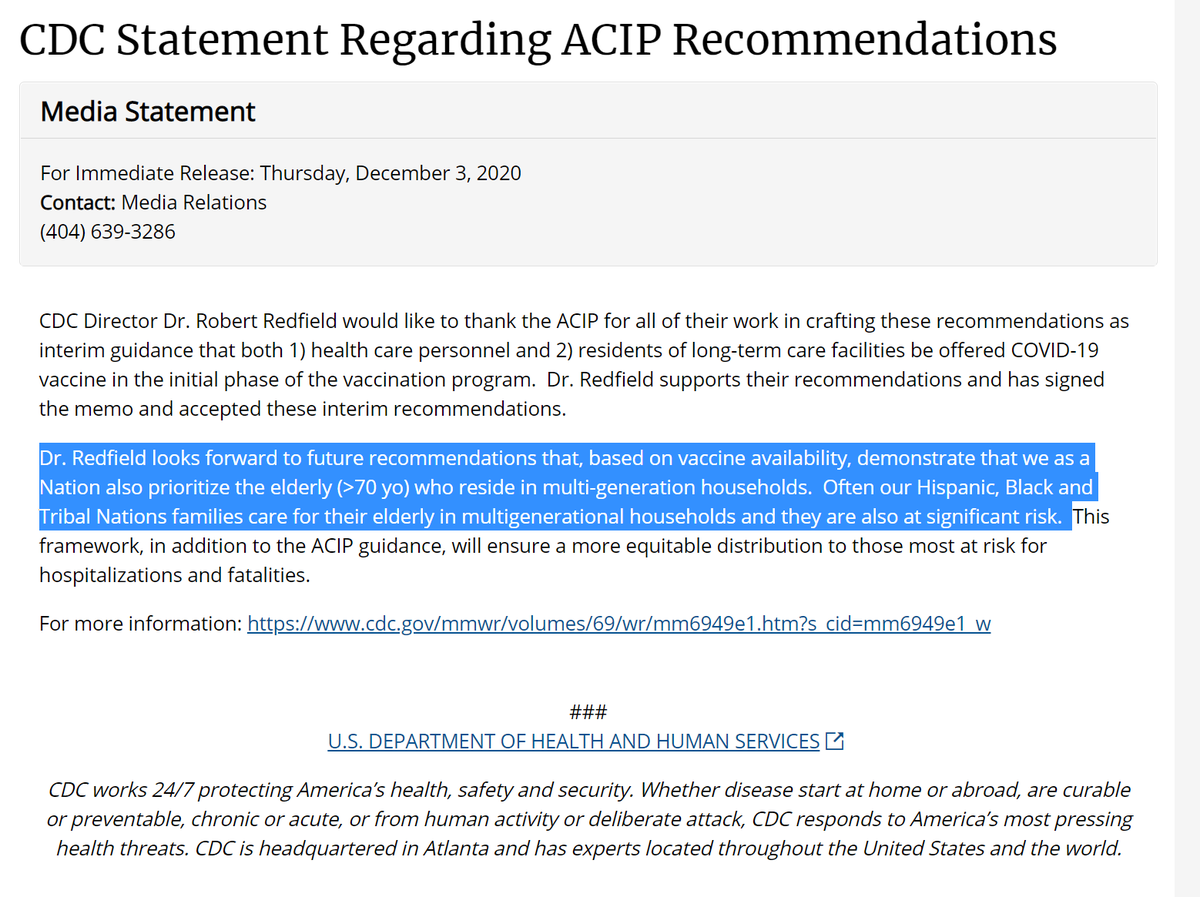
Associate prof @UofDenver @SturmCOL, teaching #healthlaw. @StanfordPhil/@StanfordLaw/@NIHBioethics alum. Mastodon: https://t.co/C6dcWXG51P
How to get URL link on X (Twitter) App



https://twitter.com/Alexander_Tin/status/1428036460633108495Based on this approach, we are going to put dedicated Jan 2020 vaccine-hunters & a bunch of random hospital employees who were conveniently near our early distribution sites before higher-risk populations who had to overcome hesitancy, access barriers, & unfair eligibility rules
https://twitter.com/JuliaRaifman/status/1420916456540225539My other concern about some framing (in reporting/Twitter, not the slides) is that it may fuel the following misinterpretation: "a vaccinated/vaccinated person encounter is as likely to transmit Covid as an unvaccinated/unvaccinated one"
https://twitter.com/GovindPersad/status/1420190245899825152People often want one-size-fits-all guidance
https://twitter.com/DavidnLang/status/1412161173215084544As a non-expert, I like the preregistration & use of synthetic control. Some remaining questions
https://twitter.com/MorningConsult/status/1385293306897346570"The racial gap persists across income levels, but is widest among people making less than $50,000 annually: 72 percent of white adults in that group who want a shot have gotten one, compared with 57 percent of Black adults and 47 percent of Hispanic adults in that income range."
https://twitter.com/PostOpinions/status/1383772141317812239COVID-19 remains a pandemic that causes serious, widespread, not fully understood harms
https://twitter.com/Yadav_supplychn/status/1382433633198280706For vaccine allocation, CDC/NIH called on @NASEM_Health committee: nationalacademies.org/our-work/a-fra…
https://twitter.com/nataliexdean/status/1381938631175249925This feels like Germany's mistakes on AZ's vaccine
https://twitter.com/EricTopol/status/1380587299855945730We have the luxury of two very good options

https://twitter.com/HelenBranswell/status/1340698200882229250Down Syndrome deaths are disparately high and happen before 75. 54%, 61%, and 69% of Black, Hispanic, and AI/AN deaths (respectively) happen before 75. I haven't seen US data on income x age at death, but a similar gradient is plausible, and may help explain the race data. /2



https://twitter.com/CarolineYLChen/status/1340046920631394310?s=20. But it’s not “algorithms”, it’s inputs. If your inputs are too simplistic (age-only, ignore exposure or medical risk), you get bad outcomes, e.g. no residents, senior WFH 1st 2/7
https://twitter.com/DrRupaliGandhi/status/1250625063382142977Modifying SOFA score w/"weights" based on race would be struck down in federal court (& certainly by this SCOTUS) under #ParentsInvolved precedent scholar.google.com/scholar_case?c…. Not endorsing that precedent, but crucial to recognize it. Area Deprivation Index is better approach /2